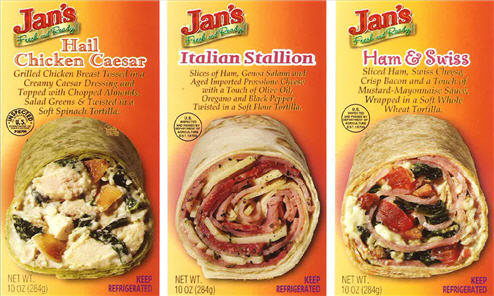A New York company called Zemco Industries has recalled 380,000 pounds of deli meat that it distributed to Walmart under the Marketside label, because it might be contaminated with Listeria monocytogenes. Although nobody has reported any illness and healthy people aren’t usually in danger, listeriosis can kill old people, infants, and others with weak immune systems. [More]
usda
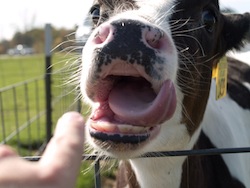
Uh Oh, 1 Million Pounds Of Beef Is Contaminated With E. coli
Alright, you know the drill: go to your freezer and look for meat products labeled “EST. 8268,” which is now code for everybody’s favorite stomach bug: E. coli. The Valley Meat Company of California announced this week that they plan to recall nearly one million pounds of ground beef contaminated with the icky stomach bug. [More]

Would You Like Fries With Your Lion Burger?
By now, you’ve probably heard about the small Mesa, Arizona, restaurant that caused an up-roar this week by making a limited-time addition to its menu — Lion Burgers. If you hadn’t heard about it, well now you have. But putting any judgment aside for the moment, one has to ask — Where in the world do you get lion meat from? [More]
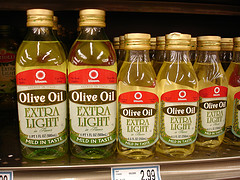
New USDA Rules Seek To End Olive Oil Confusion
While the rest of the federal government seems to be wrapped up in cleaning up the BP oil spill in the Gulf of Mexico, the Dept. of Agriculture has had its laser beams set on oil from a different source — olives. [More]
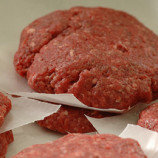
Why E. Coli Still Makes Its Way Into Your Meat Supply
Before you bite into that juicy hamburger, you might want to better understand how the meat industry creates, tests (or doesn’t test), then distributes ground beef. A detailed investigation by Michael Moss at the New York Times proves eating it is “still a gamble. Neither the system meant to make the meat safe, nor the meat itself, is what consumers have been led to believe.”
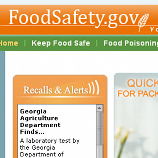
New FoodSafety Website Helps You Stop Accidentally Poisoning Your Family
The USDA and Health and Human Services (HHS) today unveiled a new website focused on food safety at foodsafety.gov. It’s got lots of info on how to keep food from spoiling, but better still it’s a good launching pad for filing complaints, or keeping track of what’s going on in your state (check the “state agency” widget in the bottom right column).

Bring Out Your Pig, The Mobile Slaughterhouse Is Here!
A group of farmers in the Seattle area are testing out a new $300,000 “Mobile Meat Processing Unit”—a 45-foot stainless steel trailer that comes with its own USDA inspector and a butcher—in an attempt to see whether they can make a profit selling their meat locally instead of shipping livestock off to a feedlot “hundreds of miles away.”

Another Month, Another Beef Recall
The summer of beef recalls continues, with the creatively named Beef Packers recalling 826,000 pounds of ground beef linked to salmonella illnesses in the western U.S.
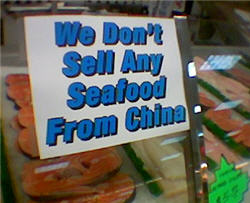
Country Of Origin Labeling Officially Begins Today
The long-awaited country of origin labeling or COOL will be enforced beginning today — so you can expect to see a “COOL” on “muscle cuts and ground beef (including veal), pork, lamb, goat and chicken; wild and farm-raised fish and shellfish; fresh and frozen fruits and vegetables; peanuts, pecans, macadamia nuts and ginseng.”

So, Who's To Blame For The Salmonella Outbreak? PCA, The FDA, The CDC…
We know there’s salmonella story fatigue setting in, but this new overview from yesterday’s Senate hearing is the best yet as far as piecing together exactly how salmonella-tainted peanut butter made it into our food supply for such a long period of time, and why it took so long to trace it back to a single rotten peanut plant in Georgia. Ultimately the blame lies with Peanut Corporation of America (PCA) for failing to maintain its factory and for not destroying lots that tested positive for salmonella, but both the FDA and the CDC had a role in it, too. One example: the FDA didn’t even know the plant produced peanut butter or peanut paste until 2007.
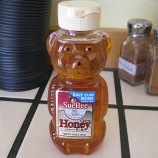
Who's Watching Our Nation's Honey Imports? Pretty Much No One
The Seattle P.I. reports that “two-thirds of the honey Americans consume is imported and almost half of that, regardless of what’s on the label, comes from China.” The first problem with that is some Chinese honey is “tainted with banned antibiotics” such as ciprofloxacin and chloramphenicol. The second problem, according to U.S. honey producers who are upset about the lack of oversight, is that whenever contaminated honey is discovered, many companies just sent it back to the importer and never tell the FDA—which means it can be resold elsewhere, including to other U.S. packers.

Bush Administration To Meatpackers: Please Stop Testing For Mad Cow Disease
The USDA has appealed a district court decision that would allow meatpackers to conduct their own tests for mad cow disease, alleging that such testing would only create “false assurances.” The original plaintiff, Creekstone Farms, wants to test all of its cattle for mad cow but the USDA has prevented it from buying the testing kits.

Do You Know What Grade Of Beef Taco Bell Uses? Do They? Does Anyone?
A reader sent us the contents of a Better Business Bureau complaint filed against Taco Bell. It describes how a customer tried repeatedly to find out what grade beef Taco Bell uses in its food, and how nobody at the company was able or willing to provide an answer. Not surprisingly, the BBB complaint also went unanswered. Let’s just hope they’re not sourcing their beef from forklift cattle, which is like downer cattle but has odd prong-shaped bruises on the side.
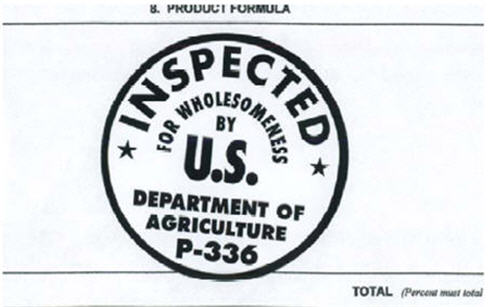
USDA Accused Of Bullying Inspectors Who Reported Safety Violations
First the FAA makes their own inspectors cry in front of Congress and now the Associated Press says that the head of the federal inspectors’ union is alleging that the USDA told him to “drop the matter” when he reported food safety violations at slaughterhouses. When he refused, he was placed on “disciplinary investigative status.”
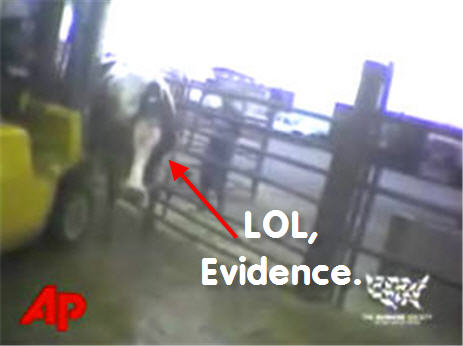
Cow Abuse Meatpacking Boss Reluctantly Admits To Tainting The Food Supply
The president of a slaughterhouse at the heart of the largest meat recall denied under oath on Wednesday, but then changed his mind, that his company introduced sick cows into the food supply, says the NYT.





